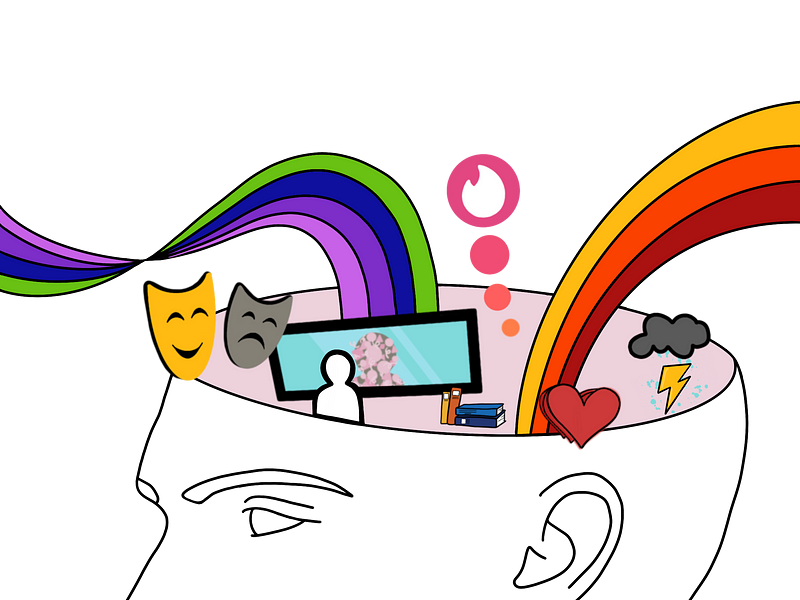How I Came to Learn Pride
A reflection on the importance of loving yourself.
Story by Cooper Campbell

I draw pride from within myself. To me, it doesn’t require money, external approval, conformity or people-pleasing. It’s something that radiates from the inside out; difficult to articulate, but felt with great certainty.
Pride isn’t always flashy. It’s not always glamorous. It doesn’t always come naturally.
Sometimes it’s hard-fought, slowly-built, and takes time to flourish into something outwardly beautiful. That’s my experience, anyway. For me, pride means years of, “doing the work,” to be more at ease with myself and my body.
Growing up, I was far removed from any authentic feeling of pride. Sexuality aside, inhabiting my body wasn’t pleasant. I didn’t know what to make of me; my eyes, my face, my torso, my body.
And bless you, mom, for this nose.
I’ve had to go back and make reparations with my inner child for the effect this discontentment had on my well-being.
Anyway, my relationship with myself was not warm and fuzzy. And, as exceedingly obvious as it was to literally all my peers, I didn’t know I was gay until 7th or 8th grade. Apparently my voice and mannerisms (see: limp wrists) were a clear indicator of homosexuality. My time in the closet didn’t start until after I was relentlessly asked, “Are you gay?”
This question was always accompanied by chilling fear.
That fear was not without merit.
People were seeing something in me that I hadn’t even identified myself, and that something put me at risk of further bullying, discrimination and physical harm. I’ve personally experienced harassment for being, “gay,” for being chatty and for shrieking when I got excited.
By the time I’d made it through high school, came out, and gone to college, I had no relationship experience, zero sexual encounters and next to zero experience being romantically intimate with another human. I had catching-up to do.
Enter: anxiety and depression. I’d dealt with anxiety before, but spending nine months at a school in Oregon was unlike anything I’d ever been through.
I constantly experienced distress and alienation from hookup culture. I thought I could never participate in the way I saw other people doing. I thought I was just too anxious and uncomfortable. When you’re working on being comfortable with yourself, apps that demand split-second decisions on people’s attractiveness are decidedly unhelpful.
During this period, I was also dealing with major depression and anxiety, as so many LGBT folks do. Lesbian, gay and bisexual individuals are twice as likely as heterosexual individuals to deal with a mental health condition. For trans folks the number is nearly four times higher than cis individuals.
This is no coincidence. The insidious nature of heteronormativity, lack of proper sexual health education and general homophobia make for a distressing experience in school.
In my health class, all they told us about gay sex was that you could get AIDS. The teacher, literally the football coach, never mentioned queer pleasure or love. I never saw LGBT couples in the hallways of my high school. I never saw or identified with characters that were like me on TV.
It’s no wonder so many LGBT people are depressed and anxious.
I’ve since learned to let go of any self-blame for the mental health issues I struggle with. It’s my responsibility to address them, but they’re never my fault.
Deep and trusting friendships, lots of meditation and somatic therapy have helped shape my healing journey. These tools have changed my life, and are how I continue to “do the work,” every day.
Younger me, even just five years ago, would be shocked beyond belief if I could tell him how much better my mind and body feels. I think you can see it on my face, in the way I walk, laugh and smile. The hyperactive, giggly boy that I always have been is the face I put forward every day.
My favorite meditation teacher, Sarah Blondin, calls this the “unstoried self,” meaning the version of you that is burdened with the heavy weight of identifies and responsibilities.
I’m determined to live via this self as often as I can, because that’s where I feel the most pride.
